The Institute for Policy Integrity produces a variety of publications. Our research reports develop in-depth research on our core issues, while our policy briefs and issue briefs provide focused analysis on more timely or particular topics. Our academic articles and working papers offer original scholarly research and analysis from established experts as well as fresh new voices.
Latest Publications
-
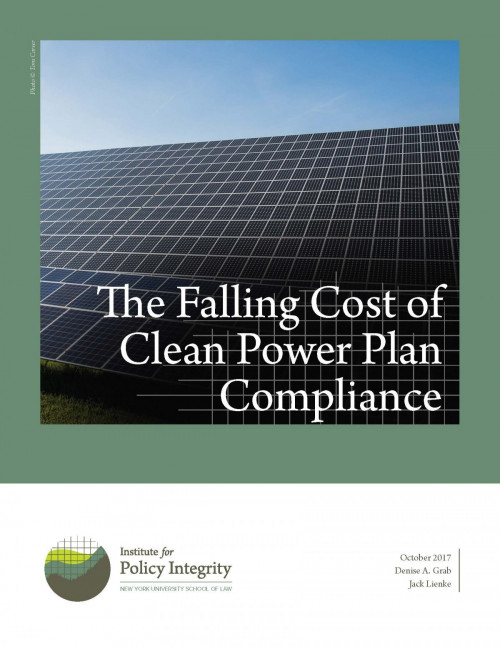
The Falling Cost of Clean Power Plan Compliance
In 2015, the U.S. Environmental Protection Agency (EPA) released the Clean Power Plan, a Clean Air Act rule designed to address the threat of climate change by cutting carbon dioxide emissions from fossil fuel-fired power plants. As part of that rulemaking, the agency prepared an estimate of compliance costs, which it found would be far outweighed by the rule’s climate and health benefits. Since that time, changes in the electric sector have made it even cheaper to meet the rule’s emission targets than EPA anticipated. This report summarizes the findings of EPA’s 2015 Regulatory Impact Analysis; discusses subsequent market and policy developments that have lowered the cost of complying with the Clean Power Plan; and surveys more recent analyses by independent groups, which have estimated substantially lower compliance costs than EPA did.
-
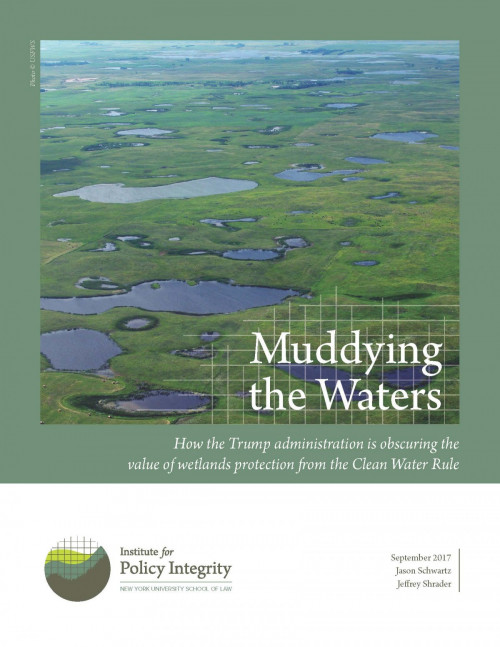
Muddying the Waters
How the Trump administration is obscuring the value of wetlands protection from the Clean Water Rule
In 2015, the Environmental Protection Agency and Army Corps of Engineers revised the definition of the “waters of the United States” as part of the Clean Water Rule. This revised definition was expected to increase the wetland area subject to protection under the Clean Water Act, and an economic analysis conducted by the agencies at the time showed that the benefits of the rule would substantially outweigh the costs. Under the Trump administration, the agencies now propose to repeal the 2015 Clean Water Rule and have issued a revised economic analysis in support of that decision. In the new analysis, the agencies now claim that the majority of the benefits in the 2015 analysis cannot be quantified, making it appear that the Clean Water Rule is not cost-benefit justified. The agencies have violated many of their own requirements for conducting economic analysis to arrive at this conclusion, and a more comprehensive assessment of the evidence shows that the 2015 Clean Water Rule is still cost-benefit justified. Repealing the 2015 Rule would forgo substantial environmental and economic benefits.
-
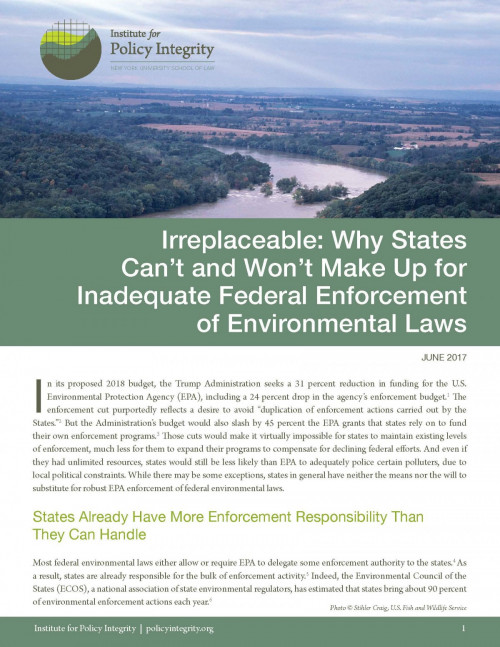
Irreplaceable: Why States Can’t Make Up for Inadequate Federal Enforcement of Environmental Laws
Budget cuts threaten EPA’s ability to enforce federal environmental laws, and states have neither the means nor the will to substitute for it. Our issue brief on EPA enforcement explores the financial and political constraints that state regulators already face when implementing federal environmental laws and how the Trump Administration’s budget cuts would exacerbate these problems.
-
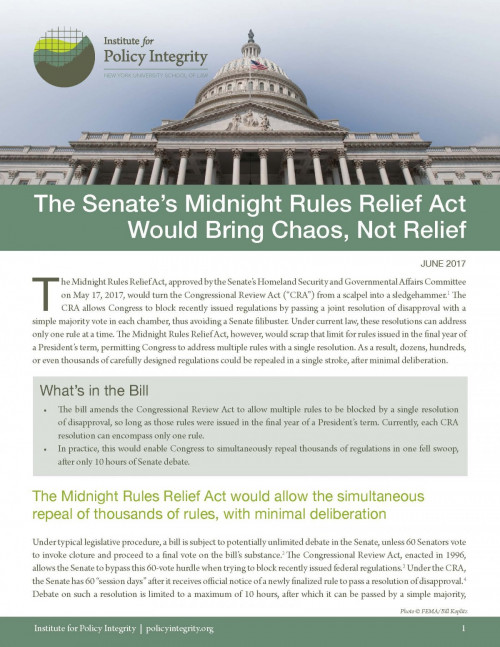
The Senate’s Midnight Rules Relief Act Would Bring Chaos, Not Relief
The Midnight Rules Relief Act, approved by the Senate’s Homeland Security and Governmental Affairs Committee on May 17, 2017, would turn the Congressional Review Act (“CRA”) from a scalpel into a sledgehammer. Our issue brief describes how this shift in regulatory policy would allow for quick repeals of public safeguards after only 10 hours of Senate debate and prevent similar rules from being enacted in the future.
-
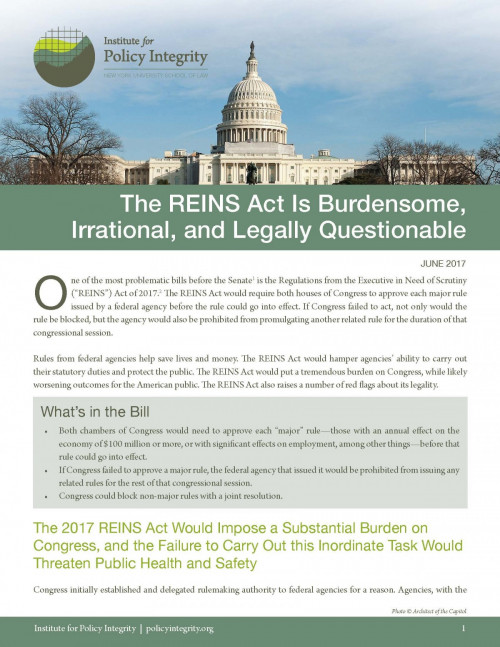
The REINS Act Is Burdensome, Irrational, and Legally Questionable
The Regulations from the Executive in Need of Scrutiny Act (“REINS Act”) would prevent agencies from issuing statutorily required rules unless approved by Congress. Our issue brief describes how this bill would create substantial burdens for Congress, worsen outcomes for the American public, and raise constitutional red flags by allowing Congress to repeal earlier statutes through inaction.
